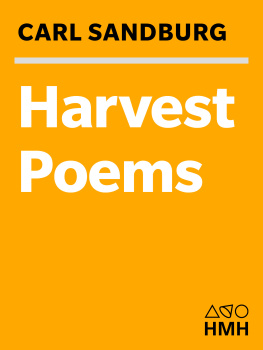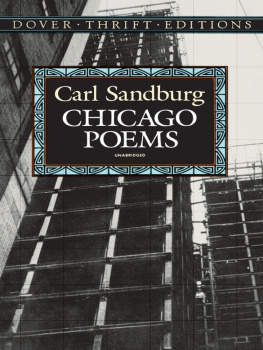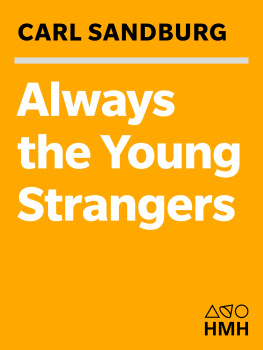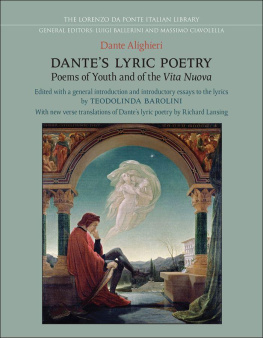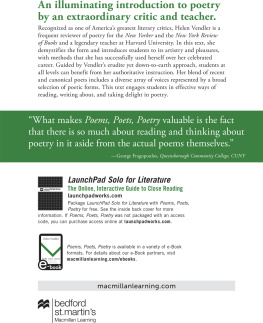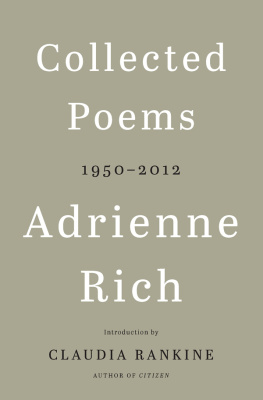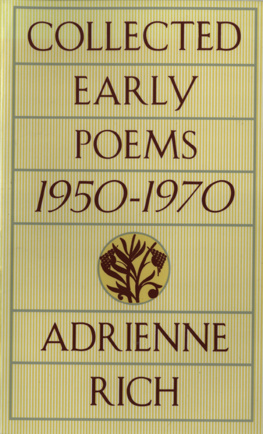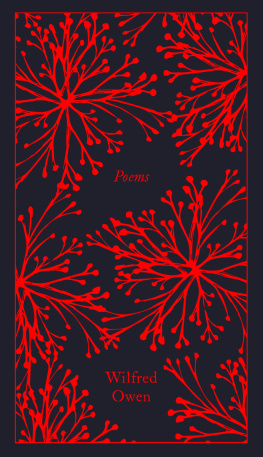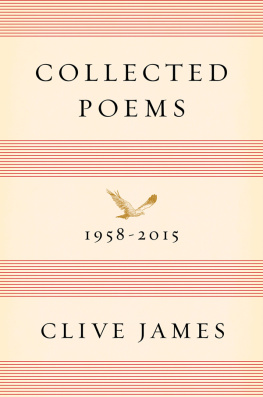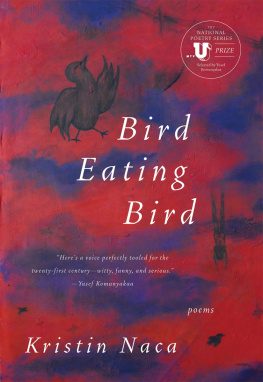Sandburg - Harvest Poems 1910-1960
Here you can read online Sandburg - Harvest Poems 1910-1960 full text of the book (entire story) in english for free. Download pdf and epub, get meaning, cover and reviews about this ebook. publisher: Houghton Mifflin Harcourt, genre: Detective and thriller. Description of the work, (preface) as well as reviews are available. Best literature library LitArk.com created for fans of good reading and offers a wide selection of genres:
Romance novel
Science fiction
Adventure
Detective
Science
History
Home and family
Prose
Art
Politics
Computer
Non-fiction
Religion
Business
Children
Humor
Choose a favorite category and find really read worthwhile books. Enjoy immersion in the world of imagination, feel the emotions of the characters or learn something new for yourself, make an fascinating discovery.
- Book:Harvest Poems 1910-1960
- Author:
- Publisher:Houghton Mifflin Harcourt
- Genre:
- Rating:5 / 5
- Favourites:Add to favourites
- Your mark:
- 100
- 1
- 2
- 3
- 4
- 5
Harvest Poems 1910-1960: summary, description and annotation
We offer to read an annotation, description, summary or preface (depends on what the author of the book "Harvest Poems 1910-1960" wrote himself). If you haven't found the necessary information about the book — write in the comments, we will try to find it.
A representative selection of poems, culled from the Pulitzer Prize-winning poets published verse, plus thirteen poems appearing in book form for the first time. [Sandburgs poetry] is independent, honest, direct, lyric, and it endures, clamorous and muted, magical as life itself (New York Times). Introduction by Mark Van Doren.
Harvest Poems 1910-1960 — read online for free the complete book (whole text) full work
Below is the text of the book, divided by pages. System saving the place of the last page read, allows you to conveniently read the book "Harvest Poems 1910-1960" online for free, without having to search again every time where you left off. Put a bookmark, and you can go to the page where you finished reading at any time.
Font size:
Interval:
Bookmark:
Copyright 1960. 1958 by Carl Sandburg Copyright renewed 1988. 1986 by Margaret Sandburg, Helga Sandburg Crile, and Janet Sandburg Introduction copyright 1960 by Harcourt Brace A Company Introduction copyright renewed 1988 by Dorothy C. Van Doren Poems are selected from CHICAGO POEMS Copyright 1916 by Henry Holt and Company. Inc. Inc. Inc.
Copyright renewed 1946 by Carl Sandburg SMOKE AND STEEL Copyright 1920 by Harcourt Brace A Company Copyright renewed 1948 by Carl Sandburg SLABS OF THE SUNBURNT WEST Copyright 1922 by Harcourt Brace A Company Copyright renewed 1950 by Carl Sandburg GOOD MORNING, AMERICA Copyright 1928 by Carl Sandburg Copyright renewed 1956 by Carl Sandburg THE PEOPLE, YES Copyright 1936 by Harcourt Brace A Company Copyright renewed 1964 by Carl Sandburg HOME FRONT MEMO Copyright 1943, 1942, 1941, 1940 by Carl Sandburg Copyright renewed 1971, 1970, 1969, 1968 by Lilian Steichen Sandburg COMPLETE POEMS Copyright 1950 by Carl Sandburg Copyright renewed 1978 by Margaret Sandburg, Helga Sandburg Crile, and Janet Sandburg Copyright 1947 by Carl Sandburg Copyright renewed 1975 by Liban Steichen Sandburg THE SANDBURG RANGE Copyright 1957, 1956, 1955 by Carl Sandburg Copyright 1953 by Carl Sandburg Copyright renewed 1985, 1984, 1983, 1981 by Margaret Sandburg, Helga Sandburg Crile, and Janet Sandburg All rights reserved. No part of this publication may be reproduced or transmitted in any form or by any means, electronic or mechanical, including photocopy, recording, or any information storage and retrieval system, without permission in writing from the publisher. For information about permission to reproduce selections from this book, write to or to Permissions, Houghton Mifflin Harcourt Publishing Company, 3 Park Avenue, 19th Floor, New York, New York 10016. www.hmhco.com ISBN -0-15-639125-2 (pbk.) e ISBN 978-0-544-78400-0
v1.1015
Humor is the final sign and seal of seriousness, for it is a proof that reality is held in honor and in love. The little poets whom the renaissance of more than forty years ago swept into oblivion were first of all unreal; their poems were not about anything that matters; and so their feelingsor the ones they said they hadfailed to be impressive. They had no genuine subjects. It is often said of the renaissance in question that the chief thing about it was its discovery of new styles. But this was secondary to the discovery of new subjects, or, rather, of old ones long neglected. Edwin Arlington Robinson restored wit to its empty throne, along with ideas and ironies which narrative helped him state.
Edgar Lee Masters in the Spoon River Anthology went all the way back to Greece for the view he would take of men and women in a contemporary village. Vachel Lindsay romped through hells and heavens of his own devising, but he romped. Robert Frost spoke with a living voice of people who lived no less than he; and there was a wryness in this voice, an indirection and an understatement so convincing that his readers scarcely knew what moved them. Ezra Pound rediscovered society as a subject, first in minor ways and then in a way which at least for him was major. T. S.
Eliot, witty always, did not rest until he had wrung paradoxes and puzzles out of theology. Wallace Stevens tried his hand at assessing the very form and contentif contentof the modern imagination. The list could be longer, but now here is Carl Sandburg, and what shall be said of the things he discovered? Once more there are those who would say that the style in his case is the man: the free verse, the long, looping lines that run on like prose and yet are not prose, the commitment to the vernacular, or, as he likes to put it, the lingo of a people. Once more, however, I would say that the first thing with him is his view of the world, which, to be sure, his style frees him to express but which is, above all, there to be expressed. And what is this view? The question is not easy to answer, for his critic or for him. It is, to begin with, a broad view, even a huge one, that takes in everything visible and a good many further things that are invisible because they are all but too fine for words.
Then there is the question of how he looks at this big scene, and of what goes on behind his eyes as he beholds it. The answer probably is that the sense of humor in him is more than anything else the sense of the absurd, or, as he might say, the cockeyed, the loony, the goofy. The scene before him is so crowded with anomalies and discrepancies that he scarcely knows what to think or say about it. He can be angry, of course, in a downright, forthright way; but he is just as likely to grin as gargoyles do, expecting neither amelioration nor excuse: the world is this way, so that is the way it is. And his style, granted, liberates him so that he may suggest all this; it gives him entry into steel mills and mean streets, into shacks along the railroad, into the hearts of obscure people to whom he feels allegiance, and of course also into the fresh winds and sweet odors that find their way into these places and then go innocently on to the farthest reaches of moon or star. The anomalies are gulfs which only a giant might hope to jump across; so Sandburg jumps, and as often as not lands safely on the other side.
He can never make up his mind, however, upon one point. Does the world make a lot of sense or does it make no sense at all? His round trips back and forth between these extremes of conviction are what his poetry, as I see and hear it, consists of. And they are long trips, with many stopovers, nor does the man who takes them fail to feel at home anywhere. Thomas Carlyle once remarked that the presence of humor in a poethe meant Shakespeare chieflyenables him to see what is beneath him and about him as well as what is above him. The ideal poet, as Schiller had said, yearns only up and off. But the real poet studies the world as it is: lovely, terrible, sensible, grotesque; and would ask for no other one in its place.
In this sense, Sandburg is a real poet, so that it is no wonder people trust him and adore him. The shovelman who works ten hours a day Keeping the road-bed so the roses and jonquils Shake hardly at all in the cut glass vases Standing slender on the tables in the dining cars there is Sandburgs humor, feeding on a contrast so gross that you would think the passengers at the tables were bound to see it too; but they dont, because the flowers shake hardly at allthe telling phrase, the barely stated fact which, nevertheless, a whole poem is built upon. The strange phenomenon of fingerprints, or thumb prints as Sandburg has it, namely that no two of them are alike, is more than strange to this poet; it is a mystery of such proportions that he assumes a Great God of Thumbs who can tell the inside story of this. Is a Halloween pumpkin fearful or funny? Children understand: I am a jack-o-lantern With terrible teeth And the children know I am fooling. Then what about the horses looking over a fence in the frost of late October saying good morning to the horses hauling wagons of rutabaga to market? It is hard to define the humor in that; it calls so little attention to itself, but it lurks in every word, and is silent as horse laughter truly is. A high majestic fooling is omnipresent in these pages, whether wind and corn are talking things over together, or the milkman puts a bottle on six hundred porches and calls it a days work, or the children of the hangman when he is home in the evening stay off some topics, or the people of the eaves, the wrens, have as much trouble keeping house as husbands and wives do.
Next pageFont size:
Interval:
Bookmark:
Similar books «Harvest Poems 1910-1960»
Look at similar books to Harvest Poems 1910-1960. We have selected literature similar in name and meaning in the hope of providing readers with more options to find new, interesting, not yet read works.
Discussion, reviews of the book Harvest Poems 1910-1960 and just readers' own opinions. Leave your comments, write what you think about the work, its meaning or the main characters. Specify what exactly you liked and what you didn't like, and why you think so.

